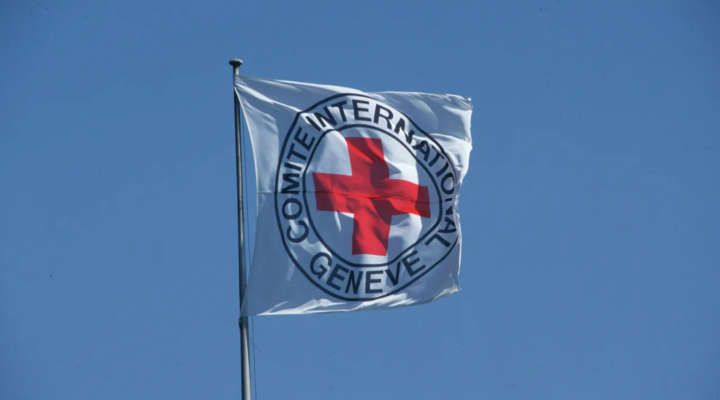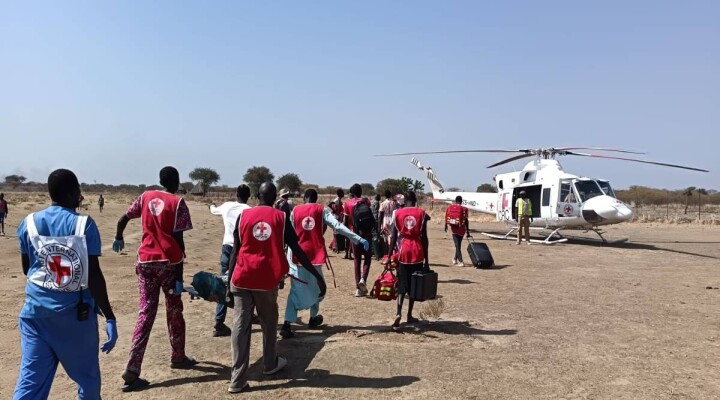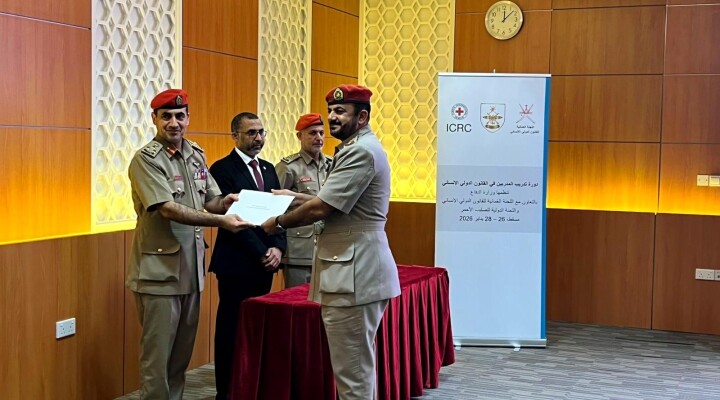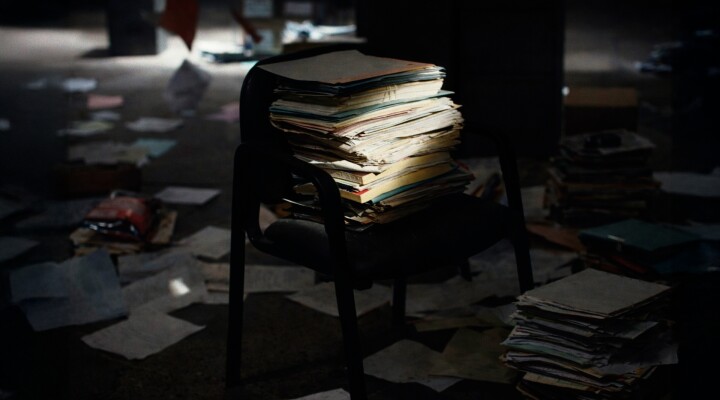Ukraine: Civilians leave Azovstal in safe passage operation, saying ‘I was afraid to sleep’
Several dozen civilians left the Azovstal plant area in Mariupol during a five-day safe passage operation coordinated by the International Committee of the Red Cross (ICRC), the parties to the conflict and the United Nations.
A convoy of buses and ambulances accompanied by ICRC and UN teams was joined by families and individuals in private vehicles along the way. More than 100 people, including some who were wounded, reached Zaporizhzhia on Tuesday.
Gregory Brissonneau, a member of the ICRC team that led the convoy, was one of the first persons to help those leaving the Azovstal plant. He recalls the scene: “You can imagine when they went out of the plant. It was two months they had not seen the sky. They did not know what was happening outside, they did not know who we were, where they were going to go. They were under shock; they were asking if we are going to be able to also release the other civilians stuck in Azovstal plant and some were asking for medical care as well.”
Alina Kuzitskaia joined the convoy on its way to Zaporizhzhia and gives a heart wrenching account of her experience over recent weeks. “I was in Mariupol from the very beginning of the war. We spent 40 days in the basement. I had to escape from the multistory building because they were shaking too much. I was afraid to sleep in my flat. We managed to get out yesterday. We left towards Manhush. We saw an advertisement saying that evacuation has officially started.“
Over the past two months, the ICRC has facilitated several safe passage operations. It is always a relief to see people able to leave areas affected by the hostilities, but more needs to be done and the ICRC will not spare any effort to alleviate the immense suffering of civilians trapped in hostilities.
SHOTLIST
Length: 3:51
Location: Zaporizhzhia, Ukraine
Date Of Filming: 3/5/2022
Videographer: Dmytro Medvedev
Copyright: ICRC access all
On Screen Credit: ICRC written or logo
00:00:00 --> 00:00:12
ICRC car entering the car park
00:00:12 --> 00:00:56
Bus entering the car park (4 shots)
00:00:56 --> 00:01:09
ICRC car entering the car park
00:01:09 --> 00:01:17
People getting out of a bus
00:01:17 --> 00:01:37 Soundbite Alina Kuzitskaia
I was in Mariupol from the very beginning of the war. We spent 40 days in the basements, in private sector, in private house. I had to escape from the multistore building because they were shaking too much. I was afraid to sleep in my flat. We managed to get out yesterday. We left towards Manhush. We saw an advertisement saying that evacuation has officially started. It was the only chance to leave towards Zaporizhzhia. Then we are going to move towards Dnipropetrovsk.
00:01:37 --> 00:01:56
People and media gathering by the buses in the car park (2 shots)
00:01:56 --> 00:02:01
Red Cross emblem on a bus
00:02:01 --> 00:02:06
Piece of white fabric on the side-view mirror of a bus
00:02:06 --> 00:02:22
People gathering by the buses in the car park (3 shots)
00:02:22 --> 00:03:51 Soundbite Gregory Brissonneau, ICRC
00:02:22 --> 00:02:50
Hello, I’m Gregory Brissonneau. I’ve been leading the team of the ICRC during this five-day operation to facilitate the safe passage of the civilians out of Azovstal plant. All the operation went well. It was five long and tiring days, but we managed to do what we were here for. This is to say – to take out all the civilians voluntarily to get out of the plant.
00:02:50 --> 00:03:28
You can imagine when they went out of the plant. It was two months they had not seen the sky. They did not know what was happening outside, they did not know who we were, where they were going to go. So they were quite worried also surrounded of course by soldiers. Discovering the destroyed Mariupol. They were under shock; they were asking if we are going to be able to also release the other civilians stuck in Azovstal and some were asking for medical care as well.
00:03:28 --> 00:03:43
The key word of this field trip is patience – it was planned for two days, it lasted five days – working 20 hours per day. It went well in a very complex environment.
00:03:43 --> 00:03:51
We are happy to continue to do this, because there are still civilians who need our help and we are happy to facilitate again some safe passage.
Ends
Note to editors:
- The ICRC has been working for the people affected by the conflict in Ukraine since 2014. Our operations in the country are among the ten largest ICRC operations worldwide. Working closely with the Ukrainian Red Cross Society, we provide emergency assistance such as food, water, and other essential items. Our emergency health response has reached 145,000 people, across 75 health facilities in Ukraine. This includes medical supplies, treatment, evacuations and the deployment of 50 medical personnel who are delivering assistance and training across Ukraine. We support authorities to repair essential infrastructure, provide cash assistance to vulnerable people affected by conflict and help people who lost contact with their loved ones, among other activities.
- Established in 1863, the ICRC operates worldwide helping people affected by conflict and armed violence and promoting the laws that protect victims of war. A neutral, independent and impartial organization, its mandate stems from the Geneva Conventions of 1949. It is based in Geneva, Switzerland, and works in more than 100 countries.



